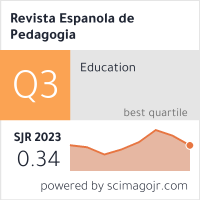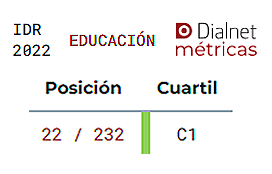DOI
10.22550/REP81-1-2023-02
Abstract
This paper defends the ideals of education for human flourishing and global friendship announced in Article 26, § 2 of the 1948 Uni- versal Declaration of Human Rights. It ar- gues that character education is an essential component of education for human flourish- ing and global friendship, and that character education must do more than teach general principles and cultivate virtues of character. It must also confront the mistrust, resent- ments, and myths that divide societies by facilitating the formation of school commu- nities and friendships that bridge the chasms of ‘us’ and ‘them’ group identities. The paper outlines the role of just school communities in character education, the importance of civic friendship, the psychological research on in- tergroup contact, and the fostering of global civic friendship. It concludes that character education adequate to today’s challenges can only succeed through a whole-school approach that is need supportive, just, and promotes friendly intergroup contact in the interest of global civic friendship.
Please, cite this article as follows: Curren, R. (2023). Superar lo que nos divide: la Amistad Cívica Global y «El pleno desarrollo de la Personalidad Humana» | Overcoming what divides us: Global Civic Friendship and ‘Full Development of the Human Personality’. Revista Española de Pedagogía, 81 (284), 33-50. 10.22550/REP81-1-2023-02
Referencias | References
Amir, Y. (1969). Contact hypothesis in ethnic relations. Psychological Bulletin, 71, 319-342.
Anderson, E. (2010). The imperative of integration. Princeton University Press.
Berryman-Fink, C. (2006). Reducing prejudice on campus: The role of intergroup contact in diversity education. College Student Journal, 40 (3), 511-516.
Blum, L. (2023). Neoliberalism and education. In R. Curren (Ed.), Handbook of Philosophy of Education (pp. 257-269). Routledge.
Bohmert, M. N., & DeMaris, A. (2015). Interra- cial friendship and the trajectory of prominority attitudes: Assessing intergroup contact theory. Group Processes & Intergroup Relations, 18 (2), 225-240.
Boin, J., Rupar, M., Graf, S., Neji, S., Spiegler, O., Swart, H., & Voci, A. (2021). The generalization of intergroup contact effects: Emerging research, policy relevance, and future directions. Journal of Social Issues, 77 (1), 105-131.
Cameron, L., Rutland, A., Hossain, R. & Petley, R. (2011). When and Why does Extended Contact Work? The Role of High Quality Direct Contact and Group Norms in the Development of Positive Ethnic Intergroup Attitudes amongst Children. Group Processes & Intergroup Relations, 14, 193-206.
Cramer, K. J. (2016). The politics of resentment: Rural consciousness in Wisconsin and the rise of Scott walker. University of Chicago Press.
Cruft, R., Liao, S. M., & Renzo, M. (Eds.) (2015). Philosophical foundations of human rights. Oxford University Press.
Curren, R. (2000). Aristotle on the necessity of public education. Rowman & Littlefield.
Curren, R. (2014). Judgment and the aims of education. Social Philosophy and Policy, 31 (1), 36-59.
Curren, R. (2019). Populism and the fate of civic friendship. In J. Arthur (Ed.), Virtues in the public sphere (pp. 92-107). Routledge.
Curren, R. (2020). Punishment and motivation in a just school community. Theory and Research in Education, 18 (1), 17-33.
Curren, R. (2021). Reply to Costa, Kleinig, and MacMullen. Journal of Social Philosophy, 52 (3), 410-422.
Curren, R. (2023a). Enabling everyone to live well. In Curren (Ed.), Handbook of philosophy of education (pp. 42-56). Routledge.
Curren, R. (2023b, in press). Social issues: A self-determination theory perspective. In R. Ryan (Ed.), Handbook of self-determination theory (pp. 1070-1087). Oxford University Press.
Curren, R. (2023c, in press). Children of the broken heartlands: Rural isolation and the geography of opportunity. Social Theory and Practice.
Curren, R. (2023d, in press). Aristotle on education, democracy, and civic friendship. In J. Culp, J. Drerup, & D. Yacek (Eds.), Cambridge handbook of democratic education. Cambridge University Press.
Curren, R., & Dorn, C. (2018). Patriotic education in a global age. University of Chicago Press.
Curren, R., & Elenbaas, L. (2020). Civic friendship. Insight Series, JCCV, University of Birmingham. https://www.jubileecentre.ac.uk/userfiles/jubileecentre/pdf/insight-series/RC_ LE_CivicFriendship.pdf
Curren, R., & Ryan, R. M. (2020). Moral self-determination: The nature, existence, and formation of moral motivation. Journal of Moral Education, 49 (3), 295-315.
Dabdoub, J. P., Salaverría, A. R., Berkowitz, M. W., & Naval, C. (2022). Leveraging colegios mayores for character development [Unpublished conference paper]. 10th Annual Jubilee Centre for Character and Virtues Conference, Oriel College, Oxford.
Demir, M., Özen, A., Doğan, Bilyk, N. A., & Tyrell, F. A. (2011). I matter to my friend, therefore I am happy: Friendship, mattering, and happiness. Journal of Happiness Studies, 12, 983-1005.
De Ruyter, D. J., Oades, L., & Waghid, Y. (2020). Meaning(s) of human flourishing and education. A research brief by the International Science and Evidence Based Education Assessment. UNESCO MGIEP. https://mgiep. unesco.org/iseea
Dhont, K., Van Hiel, A., & Hewstone, M. (2014). Changing the ideological roots of prejudice: Longitudinal effects of ethnic intergroup contact on social dominance orientation. Group Processes & Intergroup Relations, 17 (1), 27-44.
Dovidio, J. F., Eller, A., & Hewstone, M. (2011). Improving intergroup relations through direct, extended and other forms of indirect contact. Group Processes & Intergroup Relations, 14 (2), 147-160.
Dovidio, J. F., Love, A., Schellhaas, F. M. H., & Hewstone, M. (2017). Reducing intergroup bias through intergroup contact: Twenty years of progress and future directions. Group Processes & Intergroup Relations, 20, 606-620.
Greene, R. W. (2018). Transforming school discipline: Shifting from power and control to collaboration and problem solving. Childhood Education, 94, (4), 22-27.
Hammer, J. (2013). Is a lack of water to blame for the conflict in Syria? Smithsonian Magazine. http://www.smithsonianmag.com/innovation/is-a-lack-of-water-to-blame-for-the-conflict- in-syria-72513729/?noist
Hand, M. (in press). Against flourishing as an educational aim. In J. Beale & C. Easton (Eds.), The future of education: Reimagining its aims and responsibilities. Oxford University Press.
Hochschild, A. (2016). Strangers in their own land. The New Press.
Hovland, K. (2006). Shared futures: Global learning and liberal education. AAC&U.
Ignatieff, M. (2017). The common virtues: Moral order in a divided world. Harvard University Press.
Kitcher, P. (2022). The main enterprise of the world: Rethinking education. Oxford University Press.
Kitcher, P. (2023). Education for a challenging world. In R. Curren (Ed.), Handbook of Philosophy of Education (pp. 15-26). Routledge. Kruglanski, A. (2021, March 12). How the quest for significance and respect underlies the white supremacist movement, conspiracy theories and a range of other problems. The Conversation. https://theconversation.com/how-the-quest-for-significance-and-respect- underlies-the-white-supremacist-movement- conspiracy-theories-and-a-range-of-other- problems-156027
Levitsky, S., & Ziblatt, D. (2018). How democracies die. Crown.
Lipman, M. (2003). Thinking in education. Cambridge University Press.
Lipman, M., Sharp, A. M, & Oscanyan, F. S. (1980). Philosophy in the Classroom. Temple University Press.
Marinucci, M., Maunder, R., Sanchez, K., Thai, M., McKeown, S., Turner, R. N., & Stevenson, C. (2020). Intimate intergroup contact across the lifespan. Journal of Social Issues, 77, 64- 85.
Martela, F., & Ryan, R. M. (2016). The benefits of benevolence: Basic psychological needs, beneficence, and the enhancement of well-being. Journal of Personality, 84 (6), 750-764.
Matthews, G. (1980). Philosophy and the young child. Harvard University Press.
Matthews, G. (1984). Dialogues with children. Harvard University Press.
Müller, J.-W. (2016). What is populism? University of Pennsylvania Press.
Nguyen, C. T. (2020). Echo chambers and epistemic bubbles. Episteme, 17 (2), 141-161.
Nussbaum, M. (2010). Not for profit: Why democracy needs the humanities. Princeton University Press.
Paolini, S., Harwood, J., Rubin, M., Husnu, S., Joyce, N., & Hewstone, M. (2014). Positive and extensive intergroup contact in the past buffers against the disproportionate impact of negative contact in the present. European Journal of Social Psychology, 44 (6), 548-562.
Paolini, S., White, F., Tropp, L., Turner, R., Page- Gould, L., Barlow, F., & Gómez, A. (2021). Intergroup contact research in the 21st century: Lessons learnt and forward progress if we remain open and vigilant. Journal of Social Issues, 77 (1), 11-37.
Pettigrew, T. F., & Tropp, L. R. (2006). A meta-analytic test of intergroup contact theory. Journal of Personality and Social Psychology, 90 (5), 751-783.
Power, C. (1988). The just community approach to moral education. Journal of Moral Education, 17 (3), 195-208.
Power, F. C., & Hart, S. N. (2005). The way forward to constructive child discipline. In S. N. Hart (Ed.), Eliminating corporal punish- ment: The way forward to constructive child discipline (pp. 91-128). UNESCO Educational Publications.
Prentice, M., Jayawickreme, E., Hawkins, A., Hartley, A., Furr, R. M., & Fleeson, W. (2019). Morality as a basic psychological need. Social Psychology and Personality Science, 10 (4), 449-460.
Pritchard, M. (1985). Philosophical adventures with children. University Press of America.
Pritchard, M. (1996). Reasonable children: Moral education and moral learning. University Press of Kansas.
Ryan, R. M. (Ed.) (in press). Handbook of self-determination theory. Oxford University Press. Ryan, R. M., Curren, R., & Deci, E. L. (2013). What humans need: Flourishing in Aristotelian philosophy and self-determination theory. In A. S. Waterman (Ed.), The best within us: Positive psychology perspectives on eudaimonia (pp. 57-75). American Psychological Association.
Ryan, R. M., & Deci, E. L. (2017). Self-determination theory: Basic psychological needs in motivation, development, and wellness. Guilford Press.
Sadurski, W. (2022). A pandemic of populists. Cambridge University Press.
Saslow, E. (2018). Rising out of hatred: The awakening of a former white nationalist. Anchor Books.
Siegel, H. (2015). John White on the aims of education. In J. Suissa, C. Winstanley, & R. Marples (Eds.), Education, philosophy and well-being: New perspectives on the work of John White (pp. 112-124). Routledge.
Stanley, J. (2018). How fascism works: The politics of us and them. Random House.
Suárez, F. (1966). Teoría del Colegio Mayor [College theory]. Colegio Mayor Diego de Covarrubias de la Universidad de Madrid.
Tamir, Y. (2023). Malignant accountability, false promises, and the future of education. In R. Curren (Ed.), Handbook of philosophy of education (pp. 412-426). Routledge.
Turner, R. N., & Cameron, L. (2016). Confidence in contact: A new perspective on promoting cross-group friendship among children and adolescents. Social Issues and Policy Review, 10, 212-246.
Turner, R. N., & Feddes, A. (2011). How intergroup friendship works: A longitudinal study of friendship effects on outgroup attitudes. European Journal of Social Psychology, 41 (7), 914-923.
United Nations (1948). Universal Declaration of Human Rights. https://www.un.org/en/about-us/universal-declaration-of-human-rights
United Nations (1989). Convention of the rights of the child. https://www.ohchr.org/sites/default/files/Documents/ProfessionalInterest/crc.pdf
Walker, D., Curren, R., & Jones, C. (2016). Good friendships among children: A theoretical and empirical investigation. Journal for the Theory of Social Behaviour, 46 (3), 286-309.
Weinstein, N., & Ryan, R. M. (2010). When helping helps: Autonomous motivation for prosocial behavior and its influence on well-being for the helper and recipient. Journal of Personality and Social Psychology, 98 (2), 222-244.
White, F. A., Borinca, I., Vezzali, L., Reynolds, J., Blomster Lyshol, J. K., Verrelli, S., & Falomir-Pichastor, J. M. (2021). Beyond direct contact: The theoretical and societal relevance of indirect contact for improving intergroup relations. Journal of Social Issues, 77 (1), 132-153.
Wuthnow, R. (2018). The Left Behind: Decline and Rage in Rural America. Princeton: Princeton University Press.
Citación recomendada | Recommended citation
Curren, R. (2023). Superar lo que nos divide: la Amistad Cívica Global y «El pleno desarrollo de la Personalidad Humana» | Overcoming what divides us: Global Civic Friendship and ‘Full Development of the Human Personality’. Revista Española de Pedagogía, 81 (284), 33-50. 10.22550/REP81-1-2023-02
Licencia Creative Commons | Creative Commons License
Esta obra está bajo una licencia internacional Creative Commons Atribución-NoComercial 4.0.
This work is licensed under a Creative Commons Attribution-NonCommercial 4.0 International License

- Citations
- Citation Indexes: 2
- Usage
- Abstract Views: 210
- Downloads: 234
- Captures
- Readers: 16
- Mentions
- News Mentions: 1
Palabras clave | Keywords
basic psychological needs, character education, civic friendship, flourishing, intergroup contact, just school communities, Universal Declaration of Human Rights








